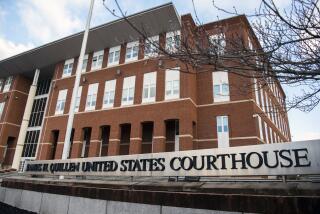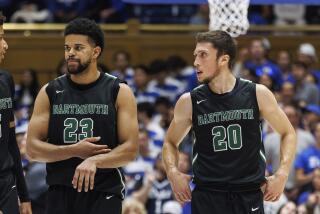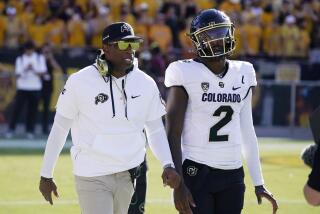Clarett Makes Pitch to Play for Pay
- Share via
NEW YORK — Maurice Clarett’s lawyers contended Friday that the NFL bars teenagers from playing professional football to perpetuate a free farm system for the league.
The lawyers asked the judge to allow Ohio State’s suspended tailback to enter the 2004 NFL draft. Clarett sued the NFL this year, challenging the league rule that a player must be out of high school three years to be eligible for the draft.
The league wants the case tossed out. U.S. District Judge Shira Scheindlin hopes to rule by Feb. 1.
The player’s lawyers said in court papers that the NFL supports the NCAA college football system to save the league tens of millions of dollars in development and training.
“College football acts in effect as a minor league, for which the NFL incurs no expenses,” the lawyers said. “While major league baseball teams each spend an average of $9 million annually for the minor league system, the NFL teams spend virtually nothing on a player development system.”
The court papers called college football “a willing partner in a cozy arrangement as it generates millions of dollars for the colleges without their having to incur the expense of player salaries.”
“Players who are otherwise able to compete with the best in their profession must bide their time on the farm working for nothing,” the papers said.
Clarett is not eligible for the draft until 2005 under current rules. The NFL, in court filings, said Clarett’s lawyers were wrong to assert that blocking Clarett from the draft until 2005 was an unfair restraint of trade.
The league said its market is governed by a contract agreement with a union representing players. The NFL said Clarett’s claim amounts “to an allegation that the eligibility rule will enable another player to secure a roster position and compensation that, in plaintiff’s view, should be his own.”
Ohio State suspended Clarett for the season. He is accused of accepting money from a family friend and lying about it to NCAA and university investigators.
More to Read
Go beyond the scoreboard
Get the latest on L.A.'s teams in the daily Sports Report newsletter.
You may occasionally receive promotional content from the Los Angeles Times.










